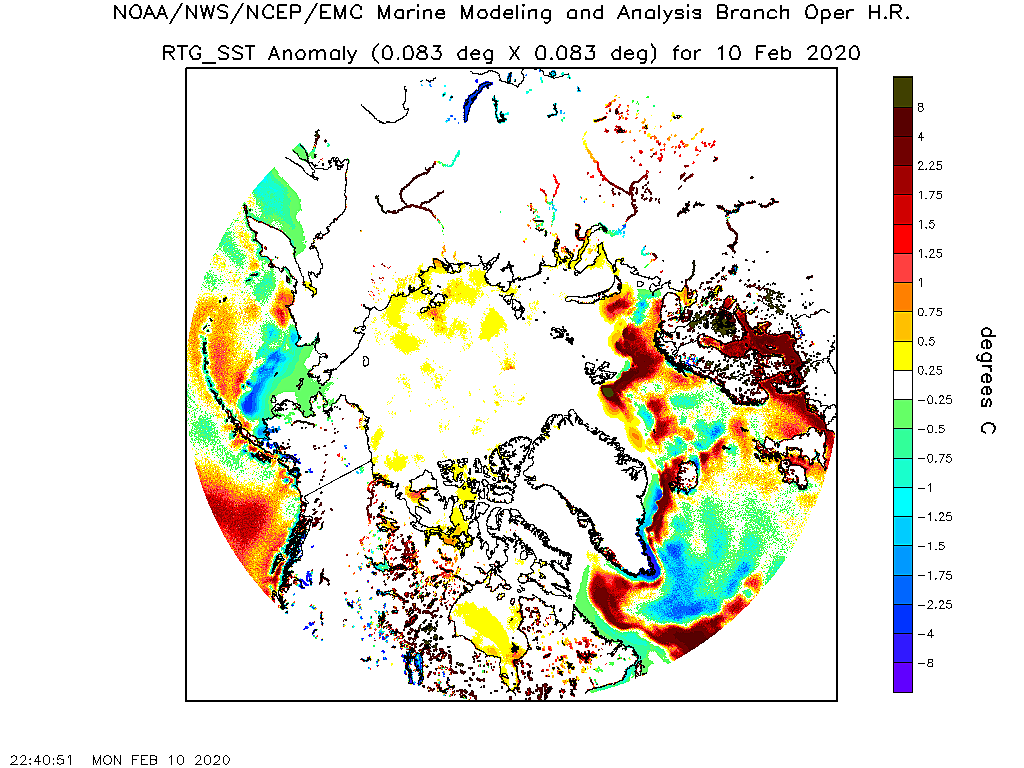A quick update for sea ice extent:
- Global Sea Ice Extent is 1,088,000 sq km above the 1981-2010 mean. That is ranked 3 for the day.
- Antarctic Sea Ice Extent is 1,622,000 sq km above the 1981-2010 mean. That is ranked 1 for the day.
- Arctic Sea Ice Extent is -534,000 sq km below the 1981-2010 mean. That is ranked 28 for the day.
Data here. Graphs below. Click for bigger.


As this Solar Cycle 24 winds down, there will be less EUV to warm the upper atmosphere/ozone layer. A simple check of this effect is the temperature of the regions around the South Pole. The Weather Underground gives “good” data. Look for new regional extremes and averages to drop in temperature. Possibly setting lots of new records. We have never been in a “cooling period” so global predictions have no historical statistical data.
The most interesting Pacific Ocean feature is at 45N, 130W. This 1600 km diameter warm water region [+2C] is still effecting the Jet Stream and the weather of the US.
See http://weather.unisys.com/surface/sst_anom.gif . Cooling will not accelerate until this region cools to long term average or less.
The most interesting Atlantic Ocean feature is at 45N, 40W. The region of frigid water is -4.5C less than average. Since this is Arctic Current driven, it has the potential to affect the Gulf Stream. This can prevent the warm waters from flowing North and be defected more to the east. This result could be less ocean heat for England/Europe this Summer and next Winter.
Love your updates! Curious about your thoughts on the daily NOAA Arctic modeled ocean temperature anomaly. All winter it shows warm anomaly where ocean is frozen. Not sure why, ever notice that?

A warm anomaly just means it could be -5 instead of -6.
DMI shows air temperatures as much as 15C warmer than normal. http://ocean.dmi.dk/arctic/meant80n.uk.php
The Polar Vortex has allowed the cold air to go south. Which means warm air has gone north.
True for air temps but since this is a ocean temp, the temp can’t really can’t be that much warmer if it is frozen can it? This is why it is perplexing to me. Check the map link to see what I mean.